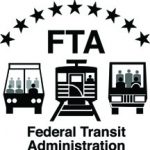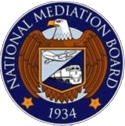
Feinberg
Washington, D.C. – Sarah Feinberg, acting director of the Federal Railroad Administration (FRA), addressed the House Committee on Transportation and Infrastructure concerning the implementation of Positive Train Control (PTC) June 24, 2015. Her speech follows.
“PTC technology is arguably the single-most important railroad safety development in more than a century. The technology is not new though – elements of PTC have existed since the early 20th century. In fact, regulators and safety advocates have been calling on the rail industry to implement some form of PTC for many decades.
“The Rail Safety Improvement Act of 2008 required the current functionality of Positive Train Control to be fully implemented by December 31, 2015. PTC is required on Class I railroad main lines where any poisonous or toxic by inhalation hazardous materials are transported. It is also required on any railroad’s main line where regularly scheduled intercity or commuter rail passenger service is conducted.
“Following passage of the PTC mandate in 2008, railroads submitted their PTC Implementation Plans in 2010 – these plans laid out a path forward that would allow each railroad to meet the deadline.
“As I have stated to this committee before: safety is the Federal Railroad Administration’s top priority. The rail system is not as safe as it could be without the full implementation of PTC. A safe rail system requires the full implementation of Positive Train Control. And that’s why FRA will enforce the Dec. 31, 2015 deadline for implementation, just as Congress mandated.
“For several years, FRA has been sounding the alarm that most railroads have not made sufficient progress in implementing PTC.
“In the seven years since passage of the PTC mandate, FRA has dedicated significant resources and worked closely with the railroad industry in order to assist and guide implementation. The FRA has:
- Hired staff to assist and oversee the implementation of PTC;
- Worked directly with the Federal Communications Commission to resolve spectrum issues and improve the approval process related to PTC communication towers;
- Built a PTC system test bed at the Transportation Technology Center in Pueblo, Colo.;
- Provided approximately $650 million in grant funds to support PTC implementation. This includes American Recovery and Reinvestment Act grants as well as Amtrak grants and other annual appropriations;
- Requested $825 million to assist commuter railroads for the last two years;
- Issued a $967-million loan through the Railroad Rehabilitation and Improvement Financing program to the New York Metropolitan Transportation Authority, the nation’s largest commuter railroad.
“I have also established a new PTC Task Force Team within FRA – that team is aggressively managing and monitoring each individual railroads’ progress, tracking data, ensuring we have the most accurate and up-to-date information and reporting in to me multiple times per week. This team is working in close collaboration with the many individuals at FRA, based here in Washington and in offices around the country, already working on this challenge.
“But, unfortunately, despite FRA’s financial support, technical assistance and warnings to Congress, many railroads have stated publicly that they will still not meet the Dec. 31, 2015, deadline.
“Recently, FRA received updated information about PTC implementation from 32 of the 38 railroads that we are currently tracking for enforcement purposes. Initial analysis indicates that Class I railroads have:
- Completed or partially completed installations of approximately 50 percent of the locomotives that require PTC equipment;
- Deployed approximately 50 percent of wayside units;
- Replaced approximately 50 percent of signals that need replacement; and
- Completed most of the required mapping for PTC tracks.
“By the end of 2015, AAR projects that:
- 39 percent of locomotives will be fully equipped;
- 76 percent of wayside interface units will be installed;
- 67 percent of base station radios will be installed; and
- 34 percent of required employees will be trained.
“According to APTA, 29 percent of commuter railroads are targeting to complete installation of PTC equipment by the end of 2015. Full implementation of PTC for all commuter lines is projected by 2020.
“FRA continues our work to finalize an enforcement strategy for those railroads that will miss the deadline. As with any regulatory enforcement posture, our ultimate goal is to bring all railroads into compliance as quickly and as safely as possible.
“Starting on January 1, 2016, FRA will impose penalties on railroads that have not fully implemented PTC. Fines will be based on FRA’s PTC penalty guidelines, which establish different penalties depending on the violation. There are many potential violations, such as:
- $15,000 to $25,000 fine for failure to equip locomotives
“The penalties may be assessed per violation, per day and may be raised or lowered depending on mitigating or aggravating factors.
“The total amount of penalty each railroad faces will depend upon the amount of implementation progress the railroad has made.
“FRA will also use additional, appropriate enforcement tools to ensure railroads implement PTC on the fastest schedule possible – be it emergency orders, compliance orders, compliance agreements, additional civil penalties or any other tools at our disposal.
“FRA is also planning for what will come after the Jan. 1 deadline. In both 2014 and 2015, the Department and FRA asked Congress to provide FRA with additional authorities that would address the safety gap that will exist on many railroads between Jan. 1, 2016 and each railroad’s full PTC implementation.
“These additional authorities would provide FRA with the ability to review, approve and require interim safety measures for individual railroads that may fail to meet the PTC deadline. These interim safety requirements would be to ensure railroads are forced to raise the bar on safety if they miss the PTC deadline – but will not and cannot be used to replace or extend the deadline.
“In conclusion, I want to extend my thanks and appreciation to this Committee for its attention and focus on achieving full PTC implementation as efficiently and quickly as possible. We look forward to working with this Committee to improve our programs and make the American rail network safer, more reliable and more efficient.”
 WASHINGTON, D.C. – The U.S. Department of Transportation’s Federal Transit Administration (FTA) announced a
WASHINGTON, D.C. – The U.S. Department of Transportation’s Federal Transit Administration (FTA) announced a  WASHINGTON – More than 10,000 veterans and active duty personnel have now taken advantage of the U.S. Department of Transportation’s Federal Motor Carrier Safety Administration (FMCSA) Military Skills Test Waiver Program. In the first three years of the Military Skills Test Waiver Program, approximately 6,000 former military personnel obtained a civilian commercial driver’s license (CDL). In the past 12 months alone, another 4,000 individuals, including Reserves, National Guard, and U.S. Coast Guard service members, have taken advantage of the Program.
WASHINGTON – More than 10,000 veterans and active duty personnel have now taken advantage of the U.S. Department of Transportation’s Federal Motor Carrier Safety Administration (FMCSA) Military Skills Test Waiver Program. In the first three years of the Military Skills Test Waiver Program, approximately 6,000 former military personnel obtained a civilian commercial driver’s license (CDL). In the past 12 months alone, another 4,000 individuals, including Reserves, National Guard, and U.S. Coast Guard service members, have taken advantage of the Program. R. J. Corman Railroad Company
R. J. Corman Railroad Company The Massachusetts Department of Transportation (
The Massachusetts Department of Transportation ( Washington, D.C. – The National Mediation Board (NMB) is pleased to announce that in June 2015 three new mediators have joined the NMB:
Washington, D.C. – The National Mediation Board (NMB) is pleased to announce that in June 2015 three new mediators have joined the NMB:

 NJ Transit commuters could see benefits from a bill proposed by U.S. Sens. Cory Booker (D-N.J.) and Roger Wicker (R-Miss.) to pump $6.6 billion over four years into Amtrak’s aging infrastructure, which could repair or replace some of the signals, overhead wire and track issues blamed for delays.
NJ Transit commuters could see benefits from a bill proposed by U.S. Sens. Cory Booker (D-N.J.) and Roger Wicker (R-Miss.) to pump $6.6 billion over four years into Amtrak’s aging infrastructure, which could repair or replace some of the signals, overhead wire and track issues blamed for delays. Ottawa, Ontario – To enhance railway safety and make the rail industry and crude oil shippers more accountable to Canadians, the Honorable Lisa Raitt, Minister of Transport, announced that the Safe and Accountable Rail Act has received Royal Assent.
Ottawa, Ontario – To enhance railway safety and make the rail industry and crude oil shippers more accountable to Canadians, the Honorable Lisa Raitt, Minister of Transport, announced that the Safe and Accountable Rail Act has received Royal Assent.